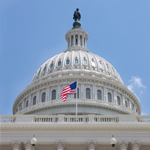The Many Arms of Dodd-Frank: Do Any Embrace Society’s Best Interests?
At a recent conference hosted by the CFA Society of Washington, D.C., speakers and panelists discussed for more than six hours aspects of the Dodd-Frank Act — its controversial approaches, the voluminous regulations, and the overall potential effects on the marketplace. While the Act was ostensibly created in 2010 to address issues underlying the U.S. financial market, whether the industry in particular, and our society as a whole, are substantially better off with this legislation remains a topic of debate.
Certainly, discussion of the Act triggers subsequent discussion on a wide range of specific topics: the designation of systemically important financial institutions (SIFIs), implementation of the Volcker Rule, new bank capital requirements, orderly liquidation, the mitigation of systemic risk, the regulation of derivatives, and whether banks should be broken up or remain universal, to name a few. With 13,000 pages of new regulations already in effect and the Dodd-Frank Act only one-third implemented, industry experts differ on whether the legislation is overkill or needed to rein in risky practices and shore up the economy. Of course, those directly affected under new or pending regulations openly expressed their often diverging opinions (with one panelist, for example, adamantly claiming that “too-big-to-fail” simply no longer exists).
But CFA Institute President and CEO John Rogers, CFA, took a slightly different and broader approach, noting that the most recent market breakdown occurred as finance “went off the rails” and became an end in itself. As a result, the social contract that should exist between financial professionals and those they serve has been damaged, if not broken. The resulting “social cost” can be seen in the savings gap suffered by many older Americans, many of whom can no longer look forward to living a “dignified retirement.” He noted that there has been a deep and underlying loss of investor trust in the financial industry, resulting in damage not only to the industry but also to society. This loss of trust directly correlates with the current defensive mindset of investors, as they seek “safe haven” investments rather than investing for the long term.

John Rogers, CFA, speaks at the CFA Society of Washington, D.C., Dodd-Frank conference. | Photo by Leslie E. Kossoff, LK Photos
While aspects of the Dodd-Frank Act purport to rein in risky practices thought to be culprits in the financial crisis, new regulations are but a part of the solution to repairing the damage that has been done. Mr. Rogers believes that true change in the industry that will serve the public interest rests on three pillars: education; ethics; and the enforcement of rules. Noting that financial entities often quickly shift to areas where there is the least regulation, he agreed that “there is a lot to be worried about right now.” And then there is the almost weekly announcement of yet a new scandal or crisis, most memorably the London Whale and Libor misdeeds.
All of this leaves us wondering whether the multitude of Dodd-Frank Act regulations will only invite a new industry intent on circumventing them. Perhaps it missed an important opportunity altogether to right an industry plagued by greed and excessive risk-taking by failing to mandate regulations designed to restore trust and integrity.
Congressmen and commentators continue to laud or lambast the Act — depending on which side of the political aisle they sit — leading most to predict many or few changes, contingent on the outcome of November’s elections. Rather than focusing on what to do with those volumes of prescriptive rules, perhaps they, too, should consider a new approach. With a view focused on investors, retirees, and the society at large, what a spectacular move it would be if our elected officials would reach across the aisle to jointly embrace refresher courses on personal integrity, individual accountability, and a collective responsibility for the societal good. The CFA Institute Integrity List (“50 Ways to Restore Trust in the Investment Industry”) is a good place to start.

